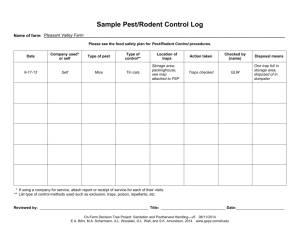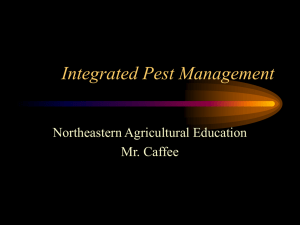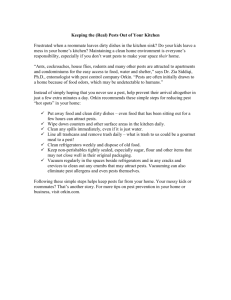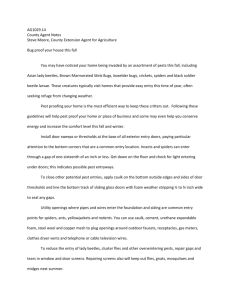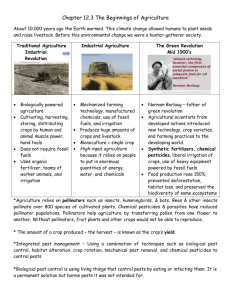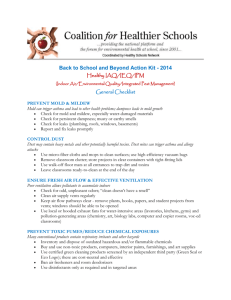PLP202 - CNR WEB SITE
advertisement
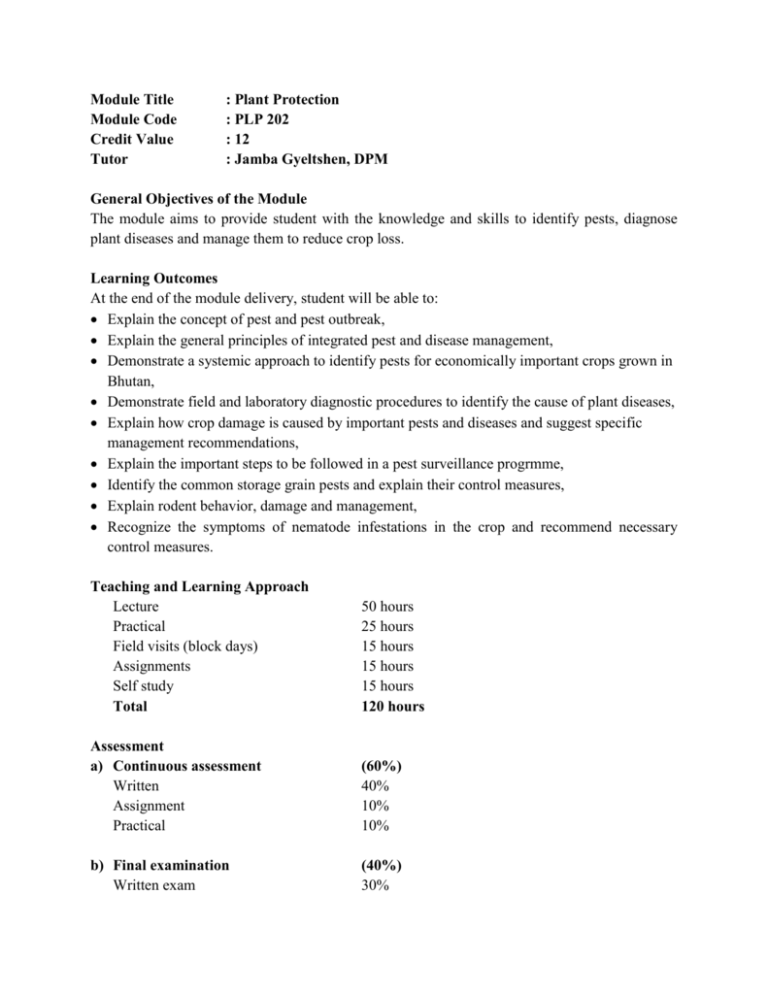
Module Title Module Code Credit Value Tutor : Plant Protection : PLP 202 : 12 : Jamba Gyeltshen, DPM General Objectives of the Module The module aims to provide student with the knowledge and skills to identify pests, diagnose plant diseases and manage them to reduce crop loss. Learning Outcomes At the end of the module delivery, student will be able to: Explain the concept of pest and pest outbreak, Explain the general principles of integrated pest and disease management, Demonstrate a systemic approach to identify pests for economically important crops grown in Bhutan, Demonstrate field and laboratory diagnostic procedures to identify the cause of plant diseases, Explain how crop damage is caused by important pests and diseases and suggest specific management recommendations, Explain the important steps to be followed in a pest surveillance progrmme, Identify the common storage grain pests and explain their control measures, Explain rodent behavior, damage and management, Recognize the symptoms of nematode infestations in the crop and recommend necessary control measures. Teaching and Learning Approach Lecture Practical Field visits (block days) Assignments Self study Total 50 hours 25 hours 15 hours 15 hours 15 hours 120 hours Assessment a) Continuous assessment Written Assignment Practical (60%) 40% 10% 10% b) Final examination Written exam (40%) 30% Project Subject Matter Unit Concept of pest Identification and diagnosis Pest Disease Storage and non insect pests Agro-chemicals 10% Contents The concept of pest and pest outbreak Integrated Pest and Disease Management Identification of pests - resources for pest ID Plant disease diagnosis - field Diagnosis of plant disease - laboratory diagnostic procedures Pest biology, lifecycle, damage, and management - cereal & other field crops pests - vegetable crops pests - fruit crops pests Surveillance - preparation for pest surveillance - detection surveys/scouting - sampling and reporting Disease symptoms, damage, and management - cereal & other field crops diseases - vegetable crops diseases - fruit crops diseases Biology of storage insect pests Storage insect pest management Rodent pest management Nematode management Application of chemicals for pest control - spray calibration, calculation of dosages, - spray preparation and application of pesticides Contact hours 5 20 21 14 8 7 Reading List Essential reading 1. Agrios, G.N. (2000). Plant pathology. 5th edn. Elsiver academic press. Amsterdam. 2. Dakshinamurthy, A. (2009). Pest management in store grains: The need and scope for pest – free grains in storage. Narayanasamy, P., Mohan, S. & Awajbavar, J.S. (Editors), Satish serial publishing house, Delhi. 3. Hariprasad, Y., Kannan, R. and Ayyasamy, R. (2009). Pest management in store grains: Tactics in rodent management. Narayanasamy, P., Mohan, S. & Awajbavar, J.S. (Editors), Satish serial publishing house, Delhi. 4. Parmar, B.S. and Tomar, S.S. (2004). Pesticide formulation: theory and practice. CBS publishers and distributors, New Delhi. 5. Pedigo, L.P. and Rice, M.E. (2009). Entomology and pest management. 6th edn. Printice hall, India. Web resources http://aciar.gov.au/files/node/2311/mn119_guidelines_for_surveillance_for_plant_pests__16233. pdf. Date last reviewed: 8th March, 2013.

